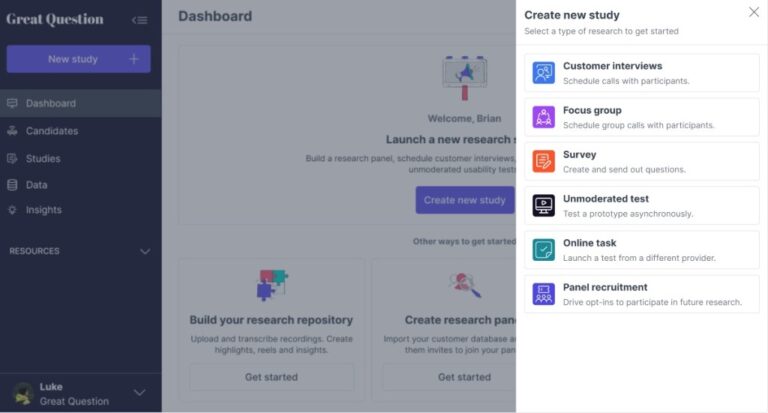Australian entrepreneur Ned Dwyer has reason to celebrate, after Great Question, the San Francisco-based startup he co-founded in 2020, raised $20 million (US$13 million) in venture capital investment.
And the Series A round has also prompted Dwyer to reflect on his experiences as an expat in Silicon Valley, and what has changed since for fellow Aussies making the leap to the US.
The funding represents the largest investment round to date for Great Question, a platform that helps companies run, analyse, and share customer research.
The round was led by Canada’s Inovia Capital, with Y Combinator, January Capital and Character Capital also contributing.
Speaking to SmartCompany, Dwyer says the funding will help Great Question build its go-to-market efforts and reach a broader customer base.
“We have a lot of Fortune 100 customers, like ServiceNow and Intuit, amongst others fast-growth companies like Canva and Brex and Gusto,” he says.
“But outside of those folks, and those teams that have got a lot of UX researchers, the innovators, the people at the forefront of technology, no-one knows, so finally we can get the word out.”
The funding will also help Great Question develop its artificial intelligence strategy: the startup says AI tools can help customers analyse quantitative user data, and even handle research tasks once undertaken by human moderators.
“With that AI moderator, you’re able to recruit [research participants] in about 20 minutes to go, anyone from your current customer database, and then in another 20 minutes, you can run up to 1,000 concurrent AI moderated sessions and analyse the results,” says Dwyer.
“And so it means something that’s taken traditionally, eight weeks prior to AI, late last year we got it down to five days. Now we’re talking about a matter of hours.”
Those tools cite the original interviews, adds Dwyer, meaning human researchers can ensure the AI is not hallucinating or producing AI slop.

Lessons for Aussies seeking US tech careers
The funding round is a milestone for Dwyer, who departed Melbourne for San Francisco in 2012 while building Elto, a platform connecting non-technical founders to Shopify and WordPress developers.
Elto was acquired by domain registration company GoDaddy for an undisclosed amount in 2015.
Dwyer says the Silicon Valley startup environment is different for Australian founders today, and these differences may indirectly benefit those seeking a tech career in the US.
“When I first came over to the States over a decade ago, there was a significant Australian population, and there were regular events that were just focused on Australians,” he says.
“And and I think that it’s great, because it makes it a little bit easier to go and meet people you’ve got a bunch in common with, and already speaks the same cultural language.
“I’m seeing less of that kind of activity now, less Australian-specific events.”
While fewer overtly Australian events might seem like a downside for Antipodeans abroad, Dwyer says it might actually push those expats deeper into the startup scene.
Newly-landed Aussies are “surrounded, not so much by Australians, but by all these other people from all around the world and the country, who are doing some of their best work on the biggest stage for technology companies,” he says.
Those who do try making their mark in Silicon Valley may still struggle with credentialism — where recruiters and investors favour applicants with known quantities on their CV, whether that be a Stanford enrolment or a stint at Meta.

Dwyer, who outlined those concerns in 2018, says credentialism is “still a problem”, with talented tech workers still required to prove themselves without relying on high-profile names on their resume.
“You might have a University of Melbourne degree, you know, a top 50 university in the world,” he says. “Nobody cares.”
“You might have worked for some big startup in Australia that never escapes Australian shores.
“But by coming out and finding smaller companies who are looking for that talent that’s maybe a little bit unpolished, and then leveraging that to go and work in larger and larger opportunities, seems to be the playbook that most of people have success with.”
Of course, not every ambitious tech worker needs to leave the country to make their mark.
Corresponding to its Series A raise, Great Question itself is hiring product and engineering workers across Melbourne and Brisbane, deepening its roots in Dwyer’s first home.
- This story first appeared on SmartCompany. You can read the original here.

